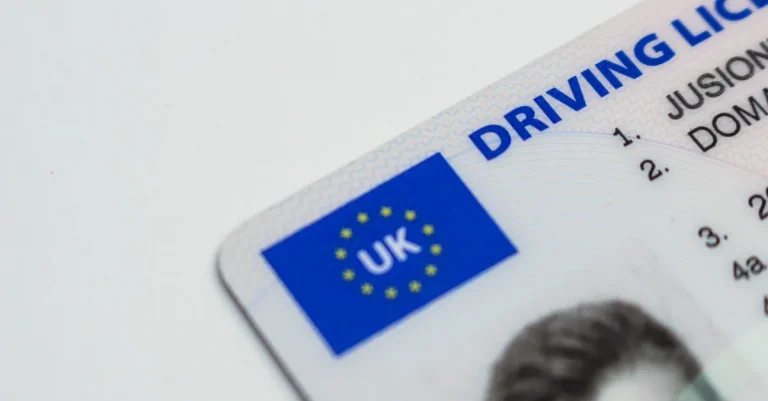What Is The Average Monthly Water Bill In Florida?
With Florida’s hot, humid climate and sprawling suburbs, many homeowners wonder what constitutes a normal water bill in the Sunshine State.
The average monthly water bill for a Florida household is $70-$100. However, your specific bill can vary greatly based on your location, household size, irrigation needs, and other factors.
In this comprehensive guide, we’ll break down the average cost of water across different Florida cities and counties. We’ll look at the factors that influence your water usage and billing, like household size, outdoor watering, and utility rates. We’ll also provide tips to help you conserve water and lower your monthly bill.
Average Water Bills by Region
Miami-Dade County
Miami-Dade County, known for its beautiful beaches and vibrant nightlife, also has a reputation for having higher water bills compared to other regions in Florida. The average monthly water bill in Miami-Dade County is around $100.
This can vary depending on factors such as the size of the household, water usage, and the specific water provider. To find more information about water bills in Miami-Dade County, you can visit the official website of the Miami-Dade Water and Sewer Department at www.miamidade.gov/water/.
Tampa Bay Area
The Tampa Bay Area, located on the West Coast of Florida, is home to several cities and counties, including Tampa, St. Petersburg, and Clearwater. The average monthly water bill in this region ranges from $60 to $80.
Just like in Miami-Dade County, the cost can vary based on factors such as household size and water usage. For more information about water bills in the Tampa Bay Area, you can visit the websites of the respective water providers in each city.
Orlando
Orlando, the theme park capital of the world, is located in Central Florida. The average monthly water bill in Orlando is around $70. It’s important to note that this is an average, and individual bills may vary depending on factors like the size of the household and water consumption.
To learn more about water bills in Orlando, you can visit the website of the Orlando Utilities Commission at www.ouc.com.
Jacksonville
Jacksonville, the largest city in Florida by area, has an average monthly water bill of approximately $90. This is slightly higher than the statewide average. Factors such as household size, water usage, and the specific water provider can influence the final bill amount.
To find out more about water bills in Jacksonville, you can visit the JEA (Jacksonville Electric Authority) website at www.jea.com.
It’s important to remember that these figures are averages and can vary based on individual circumstances. To get a more accurate estimate of your monthly water bill, it’s best to contact your local water provider directly.
They can provide you with details specific to your area and help you understand the factors that influence your bill.
Usage Factors That Impact Water Bills
When it comes to determining the average monthly water bill in Florida, several usage factors come into play. These factors can greatly influence the amount that households are charged for their water consumption.
By understanding these factors, individuals can make informed decisions to help manage their water usage and potentially reduce their monthly bills.
Household Size
One of the primary factors that impact water bills is the size of the household. The number of people living in a home directly affects the amount of water that is used on a daily basis. Larger households typically consume more water due to increased showering, laundry, and dishwashing.
On the other hand, smaller households with fewer occupants tend to have lower water bills as their overall water consumption is generally less.
Outdoor Irrigation
In Florida, where the climate is warm and often dry, many residents rely on outdoor irrigation systems to maintain their lawns and gardens. The frequency and duration of outdoor irrigation can have a significant impact on water bills.
Individuals who have large lawns or gardens and water them frequently may notice higher water bills compared to those who have smaller outdoor spaces or use water-efficient irrigation methods.
Swimming Pools
Florida is known for its abundance of swimming pools, and they can also contribute to higher water bills. The size of the pool, the frequency of pool maintenance, and the use of features such as waterfalls or fountains all affect the amount of water consumed.
Additionally, evaporation is a significant factor in pool water loss, especially in the hot Florida sun. Therefore, pool owners may experience higher water bills due to the need to refill their pools more frequently.
Tiered Rate Structures
Many water utilities in Florida implement tiered rate structures, which means that the cost per gallon of water increases as consumption levels rise. This is done to encourage water conservation and discourage excessive water usage.
As a result, households that consume more water may be charged a higher rate per gallon, leading to higher monthly water bills. It is important for residents to be aware of their water usage and try to stay within lower consumption tiers to keep their bills more manageable.
Understanding these usage factors and their impact on water bills can help Florida residents make informed decisions about their water consumption. By implementing water-saving practices, such as using water-efficient appliances, fixing leaks promptly, and being mindful of outdoor irrigation, individuals can reduce their monthly water bills and contribute to water conservation efforts in the state.
Tips for Reducing Water Usage
Adjust Sprinkler Timers
One effective way to reduce water usage is by adjusting the timers on your sprinkler system. Many people tend to overwater their lawns, which can lead to unnecessary water waste. By programming your sprinklers to water your lawn and plants during the early morning or late evening, when temperatures are cooler and evaporation rates are lower, you can ensure that your plants receive the necessary hydration while minimizing water loss.
You can also consider reducing the duration and frequency of watering sessions to further conserve water.
Detect Leaks
Undetected leaks can contribute to significant water waste and result in higher water bills. It is important to regularly check for leaks in your home, both indoors and outdoors. Look for dripping faucets, running toilets, and wet spots in your yard.
If you suspect a leak, it is advisable to hire a professional plumber to fix the issue promptly. By addressing leaks in a timely manner, you can prevent further water waste and save money on your monthly water bill.
Install Low-Flow Fixtures
Installing low-flow fixtures in your home can significantly reduce water usage without compromising on functionality. Low-flow showerheads and faucets restrict water flow while maintaining adequate water pressure. These fixtures can help you save gallons of water with every use.
Additionally, consider installing a dual-flush toilet, which allows you to choose between a partial and full flush, depending on your needs. By making these simple upgrades, you can conserve water and lower your monthly water bill.
Limit Lawn Watering
Maintaining a lush green lawn can be a significant contributor to high water bills, especially in dryer climates like Florida. Consider limiting the amount of water you use for watering your lawn. Instead of watering every day, try watering every other day or even less frequently if possible.
Additionally, water your lawn during the early morning or late evening to minimize evaporation. Another option is to replace some of your lawn with native plants that require less water. These plants are adapted to the local climate and can thrive with minimal irrigation.
By implementing these tips, you can reduce your water usage and save money on your monthly water bill. Remember, every drop counts when it comes to water conservation!
Conclusion
The average water bill in Florida ranges from $70-$100 per month. Your specific bill depends on household size, outdoor water usage, and utility rates in your area.
By following water conservation tips like reducing irrigation, fixing leaks, and installing low-flow fixtures, you can lower your water usage and monthly bills.








